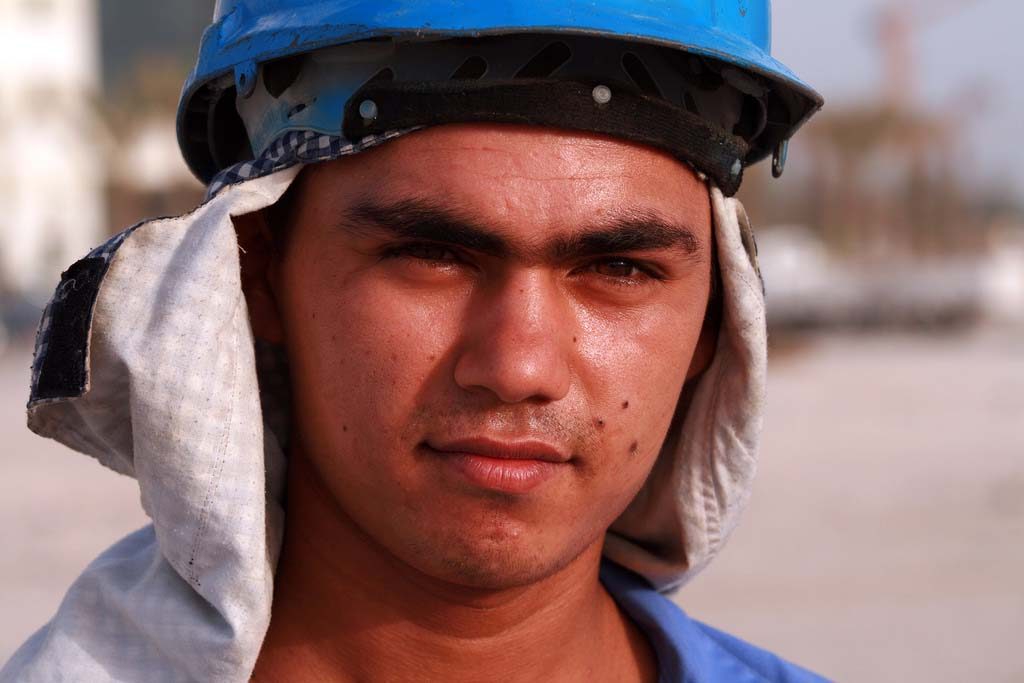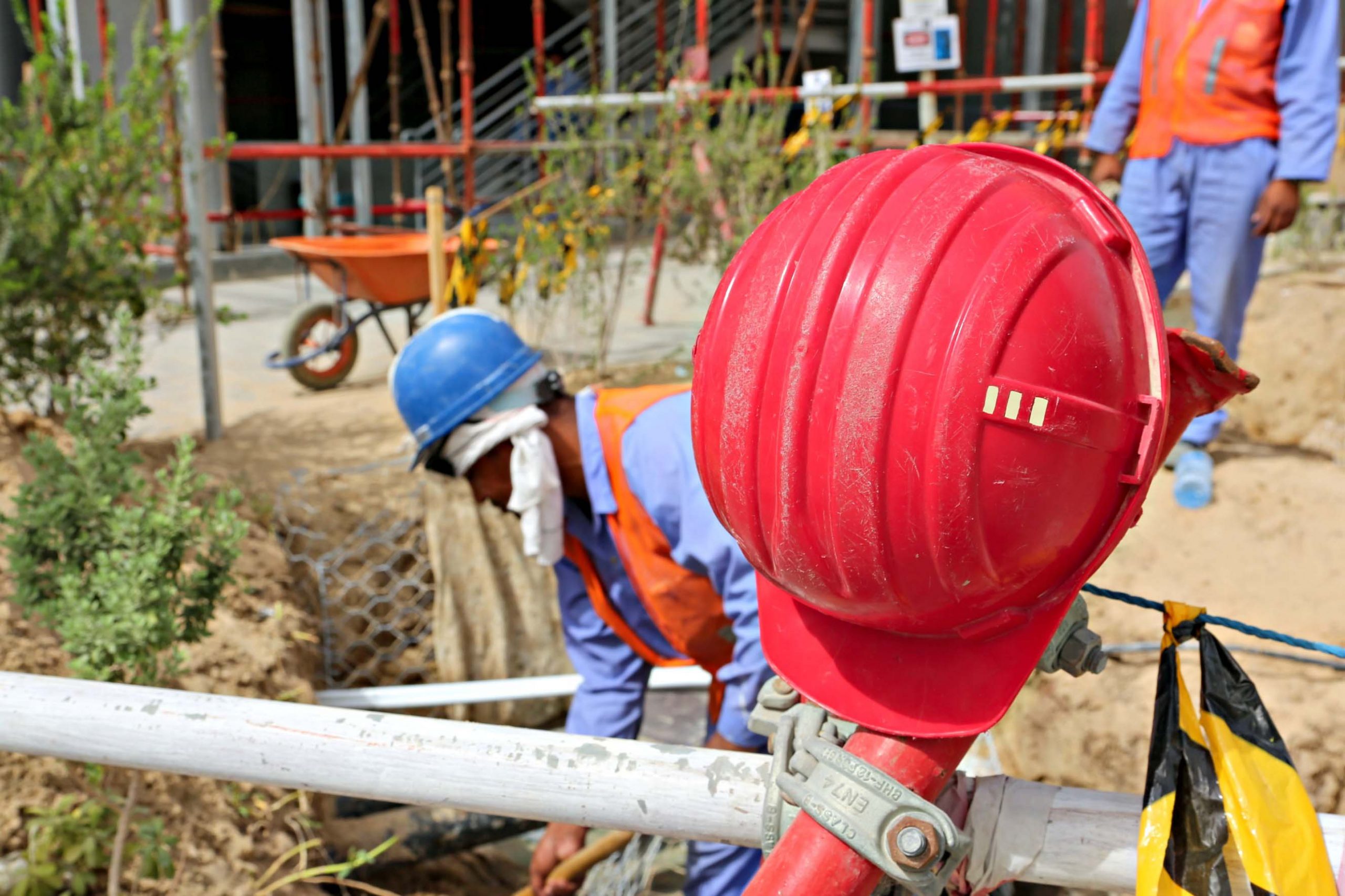
Ahead of the upcoming Eid holidays, in which the government breaks for two weeks, Qatar’s labor minister has said that proposed changes to the restrictive kafala sponsorship system would be implemented “as quickly as possible.”
In a statement, Dr. Abdullah Saleh Al Khulaifi also recapped the myriad reforms the Ministry of Labor and Social Affairs (MOLSA) was initiating to improve living and working conditions for blue-collar expats here.
Regarding the proposals in May to make it easier for expats to switch employers and leave the country, Al Khulaifi said:
“There will, of course, continue to be consultation – including with business groups, workers groups and NGOs. However, the direction we are taking is firmly set and every effort is being made to put in place the reforms as quickly as possible – as these most recent measures show.”
The potential changes have been with criticism over the past few months from expats and international human rights groups who say they don’t go far enough, while some Qatari business people believe they are too radical.
Qatar began seriously talking about improving workers’ conditions following intense international scrutiny and the publication of a number of reports documenting labor abuses.
Reforms
Amendments to the labor law regarding exit permits and no objection certificates are still pending, but MOLSA does appear to be stepping up enforcement of existing legislation.

The ministry said that it recently closed down 33 labor camps and construction sites for flouting the labor law.
Specific reasons for the site shutdowns were not given. The ministry added that it has increased the number of spot checks on work sites, with a total of 5,083 visits in June, compared to 4,335 in May.
More safety inspectors have also been recruited to ensure sites comply with regulations, Al Khulaifi said, adding:
“We know there is much more to do, but we are making definite progress and we are determined to build momentum and drive leadership on the issue in the region.”
Finally, the statement reminded employers about Ministerial Resolution 16 of 2007, which mandates a midday outdoor work ban from mid-June to Aug. 31.

Those who require their employees to work outdoors from 11:30am to 3pm during the summer months risk having their sites closed for up to one month, and risk being publicly named and shamed.
A whistle blowers’ hotline has been set up to report erring employers.
Housing improvements
The announcement of the 33 site closures comes just a week after the Cabinet approved a draft decision to make changes to Qatar housing law, No. 17 of 2005.
Although no details were published last week about potential changes, the ministry is now saying that some of these provisions include increasing the space allocated per worker from 4 sqm to 6 sqm.

The statement lists a number of recent improvements to workers’ living conditions, citing new facilities being built at Industrial City and Barwa Al Baraha (Workers’ City), which is due to partly open this summer after four years of delays.
However, during a media tour of the new facilities, the workers’ bedrooms could be seen with bunk beds, a common practice in many labor camps, but one that contravenes new minimum living and working standards laid out for laborers working on 2022 World Cup projects.
The poor living conditions faced by many manual workers in Qatar have been well documented in recent years.
In 2012, Human Rights Watch reported on visits to six labor camps, which clearly flouted local regulations.
Each of the six labor camps Human Rights Watch visited housed between eight and eighteen workers per room, all workers slept in bunk beds, and some workers said they did not have drinkable water in their own camp.
Some said their air conditioning had been broken for weeks or months without repair despite the high temperatures, and some lived in windowless rooms that stand of mold.”
Following a visit to Qatar in November last year, UN Special Rapporteur on the human rights of migrants, Francois Crepeau said he found clear breaches of Qatar’s regulations, and described “dump-like” conditions at camps.
Overcrowding, poor sanitation and “problematic” access to water were among his complaints of the sites.
Banned recruitment agencies
Rogue and exploitative recruitment agencies that exploit blue-collar workers who wish to come to Qatar have long been a problem for the state.
To this effect, the labor minister’s statement welcomed recent action by the Nepali Embassy in Qatar, which has banned 55 manpower agencies from recruiting expats to work here.

The embassy’s labor attache in Qatar, Indra Dev Pandey is quoted in Nepalese newspaper Kantipur as saying the firms were charging migrants a higher recruitment fee than they are legally allowed to by the Nepalese government. They also failed to ensure contracts that outlined salaries and work commitments.
The newspaper, which lists the banned agencies, also reports Pandey as saying that he has written to the Nepalese government to demand further action against the firms.
Last week, MOLSA announced that recruitment agencies that repeatedly break the labor law face being named and shamed in newspapers.
Although Qatar’s Labor Law prohibits agencies from charging workers recruitment fees, it is in reality a common practice.
A recently-published report by Qatar Foundation into the hiring practices of semi and unskilled workers described a system of “endemic corruption,” resulting in trafficking, debt bondage and forced labor.
It particularly criticized recruitment agencies in home countries, many of which charge exorbitant fees and put the workers into serious debt before the arrive in Qatar.
Thoughts?







